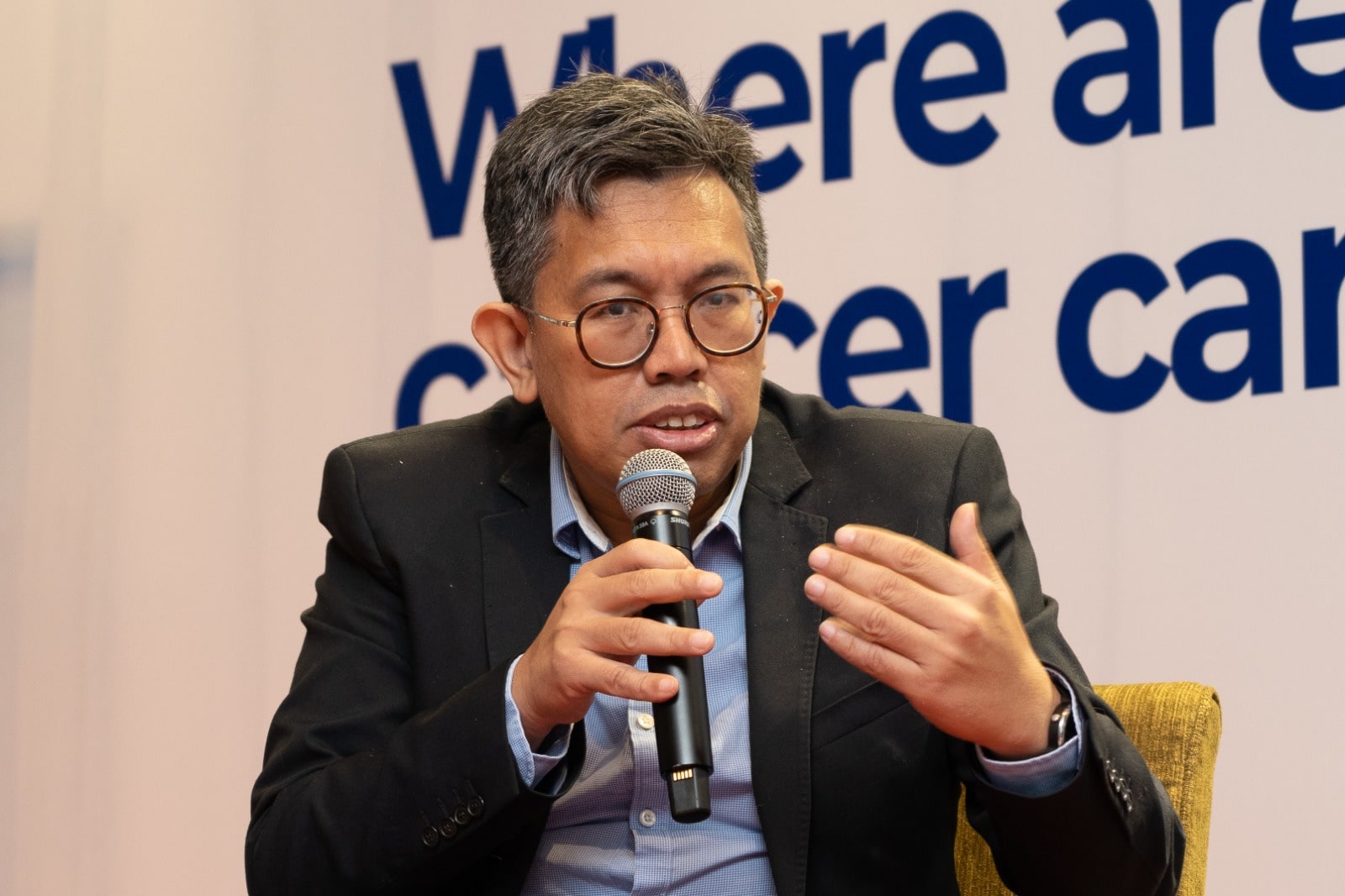KUALA LUMPUR, June 28 – Malaysia’s health care system is struggling to meet and deliver modern-day expectations and needs due to a lack of investment in health care infrastructure, said the Galen Centre for Health and Social Policy.
Speaking about the challenges faced by the health care system, Galen Centre chief executive Azrul Mohd Khalib highlighted the need for the digitalisation of medical records and integration of operating systems used by health care facilities across both the public and private sectors.
“You’ve got to digitalise all this and then you’ve got to put them into electronic format. You’ve got to put them in a system and you’ve got to make sure the system talks to each other – different vendors talk different languages. And everybody wants their own system,” Azrul said at the “Advancing the self-care ecosystem” forum organised by Reckitt, in partnership with EU-Asean Business Council and Galen Centre for Health and Social Policy last May 16.
“Sometimes, different hospitals may have different systems. Then you find out, and I’m not saying anything bad about KKM (Ministry of Health) because I understand where you guys are coming from, the state-of-the-art that we talk about, is actually state-of-the-art 20 years ago, or 15 years ago. That’s what we could afford. So trying to transition to what we should get today is very tough. It’s very expensive.
“We’re not willing to spend the money, we’re not willing to make some of the tough decisions to invest money in, and yet we expect the system to already start performing as if it was a 21st century system that is similar to some stuff you find in the Netherlands, in the UK.”
Azrul pointed out that while many private health care facilities have advanced systems in place to help streamline their operations and resources, the MOH must cater to the entire population, making the transformation more complex.
“Some [government] hospitals are starting that already. Sometimes, in some departments, it’s very canggih (advanced). If you go to HKL (Hospital Kuala Lumpur), you can see it in the Emergency Department – it’s like ‘Grey’s Anatomy’, if you watch that show – you can see people with tablets and all that. But most of our system is not that.
“If you go to some KKs (klinik kesihatan), they are still writing in the huge book,” Azrul said. How do you make sure that these systems are able to transition, able to work with the private sector? It really goes back to the issue of investment.”
HKL director Dr Rohana Johan previously revealed that the government hospital, one of the country’s largest and busiest health care facilities, processes up to 16,000 medical records manually per day. The records are stored at a building near HKL’s maternity hospital, nicknamed “Wisma Kayu” for its wooden infrastructure.
Azrul advocated for increased investment in the health care sector and the introduction of social health insurance as part of health care financing reforms.
Azrul previously suggested that a payroll-funded social health insurance scheme, similar to Socso’s Employment Insurance System (EIS) or payroll contributions to the Employees Provident Fund (EPF), could generate an additional annual funding of RM780 million to RM31.1 billion per year for health spending, the latter matching EPF’s contribution model. This is in addition to the Health Ministry’s allocations from the federal budget.
The MOH’s allocation in Budget 2023 was RM36.3 billion.
“We ourselves as members of society need to recognise that in order for us to get to that level that we want to be, we have to make investments and that’s why for us, at the Galen Centre, one of the things that we argue for as part of reforms for health care financing, is to introduce social health insurance,” Azrul said.
“You spoke just now about people paying more tax. We say people should contribute to a common pool of funds that contribute to financing our health care system. Not for tomorrow, not for next year, but for the next 10 to 15 years, where we are all contributing to that so it will be more responsible. We are able to look at treatment and medication and appreciate it differently.
“But it’s a very hard decision to make because it means yet another cut on your salary. Nobody likes you to cantas some of your earnings but we have to do it.
“And that’s the only way that we will be able to finance these reforms for the health care system that’s needed for us to invest in the digital health care that we see in other countries. It won’t happen any other way. Duit vape pun (tax money collected from vape) won’t cover it. Seriously.”
Prime Minister Anwar Ibrahim announced in February, during the tabling of Budget 2023 in Parliament, the government’s decision to impose excise duties on e-cigarette or vape liquids containing nicotine – half of which will be earmarked for the MOH.
Projections from tobacco firm JTI Malaysia suggest that the government could have collected RM866 million in taxes in the previous year from liquids utilised for vaping or electronic cigarettes.
The move to enable taxation on e-liquids resulted in the controversial decision to remove liquid nicotine from the Poisons List of controlled substances. This regulatory change effectively legalises the use of e-cigarettes and vape products with nicotine without any regulations governing their usage.
Following this, the Excise Duties (Amendment) Order 2023 was gazetted, establishing an excise duty of 40 sen per millilitre for vape liquids containing nicotine. This excise duty came into effect on April 1.








